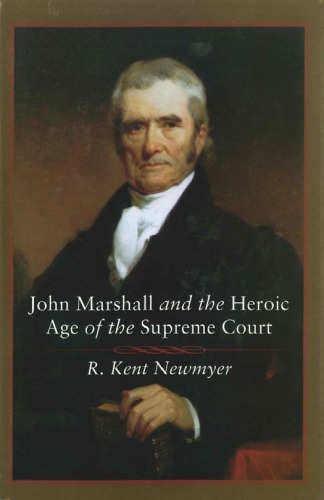

Most ebook files are in PDF format, so you can easily read them using various software such as Foxit Reader or directly on the Google Chrome browser.
Some ebook files are released by publishers in other formats such as .awz, .mobi, .epub, .fb2, etc. You may need to install specific software to read these formats on mobile/PC, such as Calibre.
Please read the tutorial at this link: https://ebookbell.com/faq
We offer FREE conversion to the popular formats you request; however, this may take some time. Therefore, right after payment, please email us, and we will try to provide the service as quickly as possible.
For some exceptional file formats or broken links (if any), please refrain from opening any disputes. Instead, email us first, and we will try to assist within a maximum of 6 hours.
EbookBell Team

4.8
74 reviewsNewmyer vividly unfolds Marshall's early Virginia years- his Americanization in Fauquier County before the Revolution, his decision to fight for independence as "a principled soldier," and his emergence as a constitutional nationalist in the 1780s. Marshall's experience as a Federalist politician and a leading Virginia lawyer during the 1790s, Newmyer argues, defined his ideas about judicial review and the role of the Supreme Court as a curb on party-based, states'-rights radicalism.
Perhaps best known for consolidating the authority of the Supreme Court, Marshall is revealed here to have been equally skilled at crafting law that supported the emerging American market economy. He waged a lifelong struggle against champions of states'-rights constitutional theory, a struggle embodied in his personal and ideological rivalry with Thomas Jefferson.
More than the summation of Marshall's legal and institutional accomplishments, Newmyer's impressive study captures the nuanced texture of the justice's reasoning, the complexity of his mature jurisprudence, and the affinities and tensions between his system of law and the transformative age in which he lived. It substantiates Oliver Wendell Holmes Jr.'s view of Marshall as the most representative figure in American law.